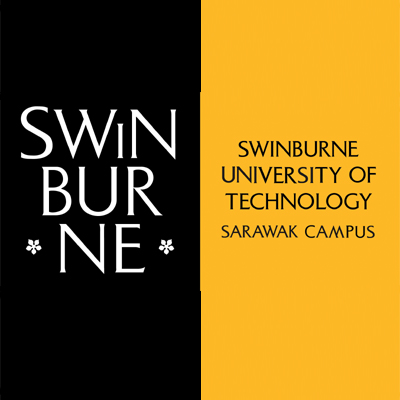
Mechanical engineering involves the design, manufacture and maintenance of machine components and systems from small domestic products to highly complex vehicle and aerospace systems. Mechanical engineers need to respond to a changing world dominated by advances in technology. Their combination of broad engineering knowledge and detailed expertise in specialist fields enables them to harness these changes.
Swinburne also offers a double degree in Bachelor of Engineering (Mechanical Engineering)/Bachelor of Commerce.
The following six objectives are the typical skills and abilities that Swinburne graduates will have a few years after graduation as they develop their professional engineer careers.
Manage complex Mechanical Engineering projects that are motivational, entrepreneurial, research and/or industry linked
Take leadership and mentoring roles during the design and implementation phases of Mechanical Engineering projects
Work in local and/or international organisations demonstrating an understanding of global engineering issues
Apply Mechanical Engineering technical expertise to industry-related fields
Work autonomously and in teams within organisations or as a consultant
Apply ethical standards, principles of design for sustainable development, and environmental consideration to conceptualising and implementing industry-related projects
At the completion of the Bachelor of Engineering (Mechanical Engineering) course, graduates will be able to: demonstrate the attainment of the following Mechanical Swinburne Engineering Competencies, required for external professional recognition:
Foundation studies
Technical studies
Design and projects
Compulsary non-credit units
Management and Business studies
Specialist elective units
4 specialist units or 4 units in a chosen Minor set (to be approved by Program Coordinator).
Students studying on an international student visa must complete Professional Experience in Engineering (HED400). All other students may complete an Industry-Based Learning placement instead (exemption will be granted for HED400 on completion of IBL).
Professional Experience in Engineering (HED400): Equivalent of 12 full time weeks of approved relevant engineering practical experience (0 credit points, 0 fees). To be taken at any stage during the degree.
Industry-Based Learning (Placement 1) (HEW050), Industry-Based Learning (Placement 2) (HEW055): Full time paid placement in industry for 6 (HEW050) or 12 months (HEW050 & HEW055) in an area relevant to your studies (0 academic credit points, unit fees apply.
Swinburne offers International Exchange Programs as well as other Education Abroad Programs to help internationalise your degree. International Exchange is an academic program allowing you to study at a Swinburne Partner Institution for one or two semesters during your degree. Swinburne’s Partner Institutions offer many relevant subjects as well as a secure base to explore a different culture. Your studies whilst on exchange can be credited towards your Swinburne degree, provided they are relevant and approved by Swinburne. For further information visit the Swinburne Abroad website.
Employment may be found in many areas of industry and commerce including automotive, vehicle, transport, power, manufacturing, materials processing, appliance production, mechanical building services, mining and raw material conversion.
The mechanical engineer’s contributions can include design, development, testing, innovation, project management, planning, research, quality control, and engineering management.
This program has also been professionally accredited by the Engineering Accreditation Council (EAC) Malaysia and Engineers Australia.
Graduates are eligible to apply for membership of Engineers Australia as well as Graduate Membership of Board of Engineers Malaysia.
| Level of study | Foundation and Diploma | Undergraduate | Postgraduate |
|---|---|---|---|
| IELTS | 5.5 (no individual band below 5.0) | 6.0 (no individual band below 6.0) | 6.5 (no individual band below 6.0) # 7.0 (no individual band below 6.5) |
| TOEFL (Paper based) a (Internet based)b |
527 |
550 |
575 |
| SPM * | B | – | – |
| UEC ** | A2 | A2 | – |
| MUET *** | 4 | 4 | – |
| GCE ‘O’ and ‘A’ Level | Score of ‘C’ or better for ‘O’ level English**** | Score of ‘C’ or better for ‘A’ level English | – |
| International Baccalaureate | Minimum of 4 in English A1 or A2 (Higher and Standard Levels) or Minimum of 5 in English B (Higher Level) | – | |
| * | Students with a C+ or C English grade are required to enter the Intensive English program at UIIE; students with a D or E English grade are required to sit the Swinburne Sarawak English Placement Test to determine the level of Intensive English program they must enter |
| ** | Students with B3 to B6 English grades are required to sit the Swinburne Sarawak English Placement Test to determine whether they require additional English classes |
| *** | Students who obtain band 1 to 3 in MUET are required to sit the Swinburne Sarawak English Placement Test to determine whether they require additional English classes |
| **** | Not applicable for “English as Second Language” |
| a | Foundation and diploma programs – minimum Test of Written English [TWE] score of 4.5 Undergraduate programs – minimum Test of Written English [TWE] score of 5.0 Postgraduate programs – minimum Test of Written English (TWE) score of 5.0 |
| b | Foundation and diploma programs – with no band less than 18 Undergraduate programs – with no band less than 20 Postgraduate programs – with no band less than 20 |
| # | Entry requirement for Master of Arts (TESOL) |
Source : SwinBurne University Of Technology